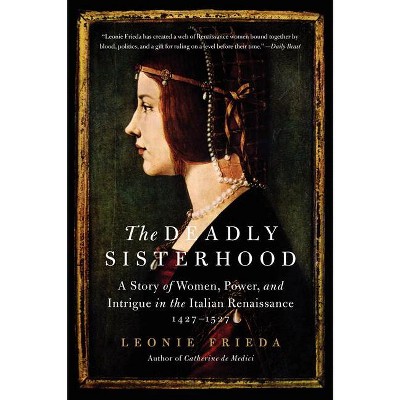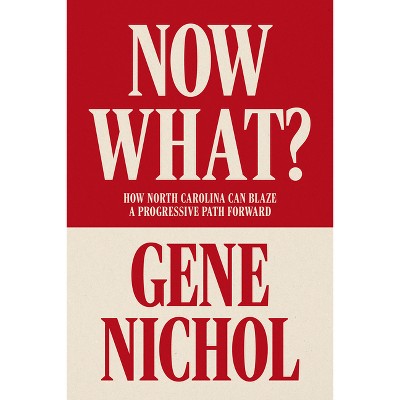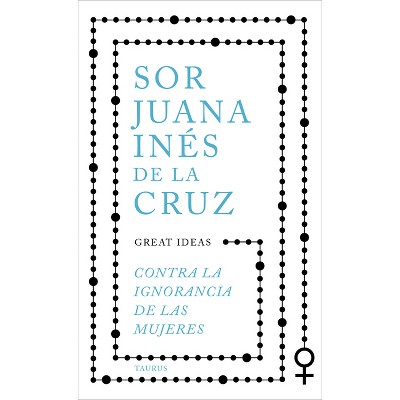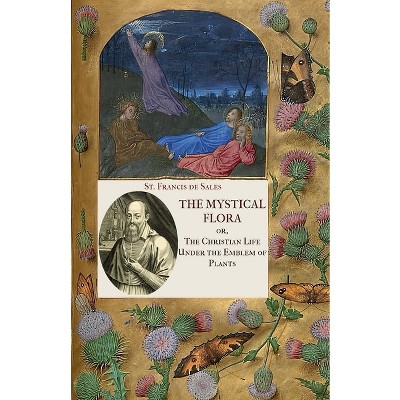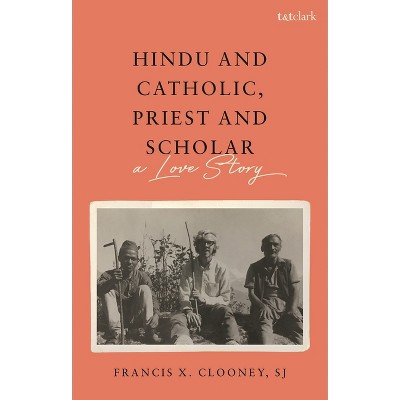Sponsored

Francis I - by Leonie Frieda (Paperback)
In Stock
Sponsored
About this item
Highlights
- The bestselling author of Catherine de Medici returns to sixteenth-century Europe in this evocative and entertaining biography that recreates a remarkable era of French history and brings to life a great monarch--Francis I--who turned France into a great nation.Catherine de Medici's father-in-law, King Francis of France, was the perfect Renaissance knight, the movement's exemplar and its Gallic interpreter.
- Author(s): Leonie Frieda
- 384 Pages
- Biography + Autobiography, Royalty
Description
About the Book
"Francis I was inconstant, amorous, hot-headed and flawed. Yet he was also arguably the most significant king that France ever had. This is his story"--Book Synopsis
The bestselling author of Catherine de Medici returns to sixteenth-century Europe in this evocative and entertaining biography that recreates a remarkable era of French history and brings to life a great monarch--Francis I--who turned France into a great nation.
Catherine de Medici's father-in-law, King Francis of France, was the perfect Renaissance knight, the movement's exemplar and its Gallic interpreter. An aesthete, diplomat par excellence, and contemporary of Machiavelli, Francis was the founder of modern France, whose sheer force of will and personality molded his kingdom into the first European superpower. Arguably the man who introduced the Renaissance to France, Francis was also the prototype Frenchman--a national identity was modeled on his character. So great was his stamp, that few countries even now are quite so robustly patriotic as is France. Yet as Leonie Frieda reveals, Francis did not always live up to his ideal; a man of grand passions and vision, he was also a flawed husband, father, lover, and king.
With access to private archives that have never been used in a study of Francis I, Frieda explores the life of a man who was the most human of the monarchs of the period--and yet, remains the most elusive.
From the Back Cover
Francis I was inconstant, amorous, hotheaded, and flawed. Yet he was also arguably the most significant king ever to rule France. This is his story.
Leonie Frieda, the author of the bestselling Catherine de Medici, tells the extraordinary tale of King Francis of France, Catherine de Medici's father-in-law and the man who turned France into a great nation. Francis saw himself as the first Renaissance king. A man who was the exemplar of courtly and civilized behavior throughout France and Europe, he was also a courageous and heroic warrior, a keen aesthete, an accomplished diplomat, and an energetic ruler who transformed his country into a force to be reckoned with.
But he was also capricious, vain, and arrogant, taking hugely unnecessary risks, at least one of which nearly resulted in the end of his kingdom. His great feud with his nemesis Charles V, the Holy Roman Emperor, defined European diplomacy and sovereignty, but his notorious alliance with the great Ottoman ruler Suleiman threatened to destroy everything.
With access to never-before-seen private archives, Leonie Frieda delivers a comprehensive and sympathetic account that explores the life of the man who was the most human of all the Renaissance monarchs--and the most enigmatic.
Review Quotes
"Frieda's confidence in her mission permeates the book, raising what is in any case a fascinating narrative to the level of cogent and powerful argument...This intelligent and well-researched biography is a worthy testament to Catherine's formidable strength. Catherine de Medici reveals Frieda, a first-time biographer, to be a writer of tremendous skill and talent." - Observer
"Scholarly yet very human story of some talented women who held surprising sway in the incredible clutter of city-states that composed Renaissance Italy...Richly researched and deeply complex--at times sufficient to bemuse as much as inform." - Kirkus Reviews
"A captivating biography ... [Frieda] does herself proud. Battle scenes are vividly drawn and the intricacies of statecraft reconstructed with admirable clarity. She also has a fine eye for detail--this rollicking story is packed with anecdotes." - Times (London)
"A thoughtful, vivid and well-paced telling of a complex story; and it is set against an even more complex background of European power-politics, which Frieda picks apart with admirable skill." - Sunday Telegraph
"In the lively colorful prose of this fast read...Leonie Frieda seeks context and truth for Francis I...who pulled his country together after...a time of great dissent caused by the Hundred Years War and feudal infighting." - New York Journal of Books
